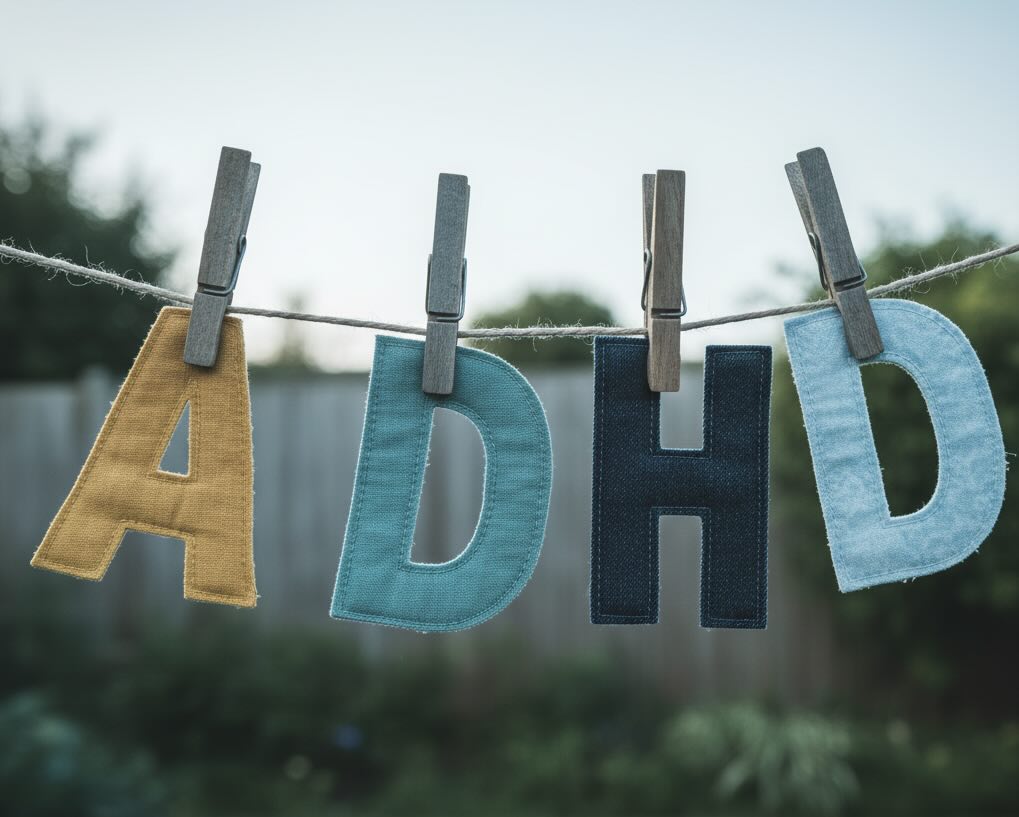What is ADHD?
Attention-Deficit/Hyperactivity Disorder (ADHD) is a neurodevelopmental disorder characterised by persistent patterns of inattention, hyperactivity, and impulsivity that interfere with functioning or development. From a medical perspective, these symptoms are a result of differences in brain structure and function, particularly in regions that control executive functions like planning, emotional regulation, and working memory. Research suggests that individuals with ADHD may have lower levels of key neurotransmitters, such as dopamine and norepinephrine, which are essential for focus and motivation. This is why many medical treatments, including stimulant and non-stimulant medications, are designed to regulate these neurochemical imbalances.
Subtypes
Clinicians group ADHD symptoms into three subtypes:
- Predominantly inattentive (mainly attention problems)
- Predominantly hyperactive‑impulsive (mainly activity/impulsivity)
- Combined type (both inattention and hyperactivity‑impulsivity)
Adult ADHD Symptoms
Core symptom clusters
- Inattention: losing focus, misplacing items, difficulty finishing tasks, seeming to “tune out.”
- Hyperactivity/Restlessness: fidgeting, feeling “on the go,” trouble sitting still for long.
- Impulsivity: interrupting, acting without thinking, impatience and risk‑taking.
How this looks in adults
- Chronic disorganisation and missed deadlines
- Starting many projects; finishing few
- Preference for short, immediate‑reward tasks
- Relationship/work friction from impulsive words/actions
- Past traffic violations or multiple minor accidents
How Do You Assess Adult ADHD?
Pinpointing adult ADHD can be tricky because the symptoms can be hard to spot. But the core signs are there from early on—before age 12—and they stick around, causing a lot of issues in adult life.
Since there's no single test that can say for sure you have ADHD, a formal diagnosis will probably involve a few steps:
- An Adult ADHD assessment, like Loffty, can provide a comprehensive way to evaluate your symptoms and help determine if your symptoms are related to ADHD, another condition, or a combination. It provides clarity and a foundation for developing a personalised management plan. An assessment can help identify the specific challenges you face, and help you and your healthcare team create a tailored approach that may include medication, therapy, or lifestyle adjustments.
- A thorough discussion with a qualified ADHD specialist about your health history and symptoms is a key part of the diagnostic process. They will also rule out other potential medical or psychological conditions that may present with similar symptoms, like anxiety, depression, or thyroid issues. Taking your Loffty Report to this meeting can give your specialist valuable insights, and accelerate your path to a diagnosis.
A good diagnostic process is holistic and rule‑out oriented:
- History since childhood: confirm symptom patterns began in childhood and persist. Include school reports and family input where possible.
- Structured, comprehensive screening: a multi‑condition mental health screen, like Loffty, helps assess ADHD and common co‑occurring conditions.
- Rule out look‑alikes: seizures, middle‑ear problems, hearing/vision issues, learning disorders, anxiety/depression, bipolar disorder, sleep disorders, Tourette syndrome, and recent major stressors.
- Multiple settings: confirm symptoms impair life across settings (home, study/work, relationships).
How Do You Treat Adult ADHD?
Effective care is often multimodal, including skills, therapy and (sometimes) medication.
Lifestyle
- Use a single calendar and task list system: break large tasks into small steps with deadlines.
- Build daily routines: same wake/sleep, planned work blocks, reminders.
- Organisation: Assign “homes” for keys, wallet, bills, and work tools.
- Stay hydrated and nourished: Dehydration and low blood sugar can worsen ADHD symptoms, like inattention and irritability. Keep a water bottle handy and have a healthy snack if you feel your focus dropping.
- Manage your sleep: Poor sleep can significantly impact concentration and emotional regulation. While good sleep hygiene is a long-term goal, even a quick nap or a conscious effort to wind down can help on a tough day.
- Mindfulness and meditation: Simple breathing exercises or a quick mindfulness practice can help you calm your nervous system, reduce impulsivity, and bring your focus back to the present moment.
- Get moving: Even a short burst of physical activity, like a quick walk or some stretches, can help regulate your brain and improve focus. Exercise is known to boost dopamine levels, which can be particularly helpful for those with ADHD.
Environmental and Task-Based Strategies:
- Minimise distractions: This is a big one. Put your phone on silent and away from your workspace, use noise-cancelling headphones, and clear your desk or work area of clutter.
- Break down tasks: A large project can feel overwhelming and lead to "task paralysis." Break it down into smaller, more manageable steps. For example, instead of "clean the house," think "wash one dish," then "take out the trash."
- Use timers: The Pomodoro Technique is popular for a reason. Set a timer for a short, focused work session (like 25 minutes), followed by a short break (5 minutes). This creates a sense of urgency and prevents burnout.
- Take short breaks: If you feel your attention wandering, step away from the task for a few minutes. Get some water, walk around, or look out a window. This can help you reset and return with renewed focus.
- Create visual aids: Use checklists, whiteboards, or brightly coloured notes to keep track of tasks and appointments. Seeing what you need to do can make it feel more concrete and less overwhelming.
- "Body doubling": This involves working on a task while someone else is in the same room, even if they're doing something completely different. Their presence can provide a sense of accountability and help you stay on track.
Talk Therapy
- Cognitive‑behavioural therapy (CBT)/behavioural therapy to build organisation, planning, and emotional self‑regulation skills; also helps reshape a negative self‑image.
- Coaching/skills training and support groups can add accountability and community.
Medication
- Stimulants (first‑line): methylphenidate or amphetamine formulations (short/long/extended‑release options; patches exist).
- Non‑stimulants: atomoxetine; some clinicians may use certain antidepressants off‑label (e.g., bupropion).
- Adults may need extra care for interactions (e.g., with blood‑pressure, diabetes, or mood meds).
- Side effects: most commonly decreased appetite, sleep problems, anxiety/irritability; rare cardiac/psychiatric risks are monitored.
- Approval notes: not all ADHD medicines are formally approved for adults, though clinicians may prescribe off‑label. In Australia, prescribing is indicated as psychiatrist‑led.
Examples (not exhaustive):
- Methylphenidate family: Ritalin, Ritalin LA/SR, Concerta, Metadate, Methylin, Daytrana (patch)
- Amphetamine family: Dexedrine, Dextrostat, Adderall/Adderall XR, Vyvanse
- Non‑stimulant: Strattera (atomoxetine)
Other Treatments & Supports
- Psychoeducation for you and close supporters (partner/family) to align expectations and strategies.
- Safety/skills for drivers: graduated practice and reinforcement of rules; supervision matters for young drivers with ADHD.
- School/work advocacy: policies and supports vary; education systems may offer accommodations based on need and local rules.
Adult ADHD Research
Treatment research across the lifespan
- Large trials (e.g., MTA study in school‑aged children; PATS in preschoolers) show stimulants reduce core symptoms; PATS highlights higher side‑effect sensitivity and the need to monitor growth. Pharmacogenetic research is exploring why individuals respond differently to medications.
Etiology: what contributes to ADHD?
- Genetics: Twin and molecular studies show strong heritability; specific variants (e.g., DRD4) have been linked to brain structure/function differences in attention networks.
- Environment: Maternal smoking/alcohol in pregnancy and lead exposure in preschool years are associated with higher ADHD risk; traumatic brain injury can mimic ADHD but accounts for a small proportion.
- Diet debates: High‑quality trials do not support sugar as causal; some evidence suggests particular food additives may increase activity for some children; research continues.
Books and Resources
Accessible books referenced in the research base
- Russell A. Barkley – Taking Charge of ADHD (consumer‑friendly, skills‑focused).
- Russell A. Barkley – Attention‑Deficit Hyperactivity Disorder: A Handbook for Diagnosis and Treatment (clinical).
- Gerald J. DuPaul & George Stoner – ADHD in the Schools (education strategies that also inspire adult organisational skills).
- Lawrence H. Diller – Running on Ritalin (societal context and medication discourse).




